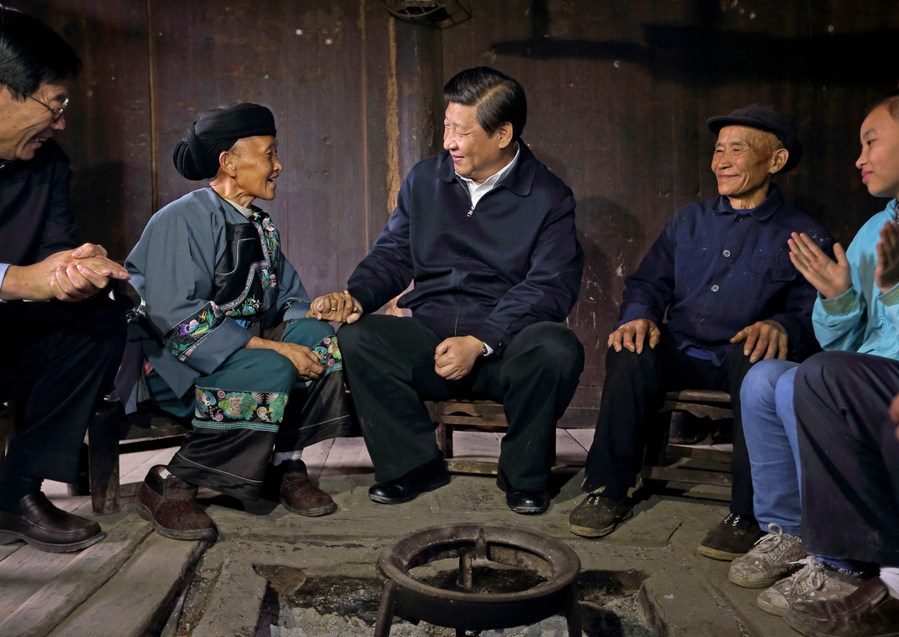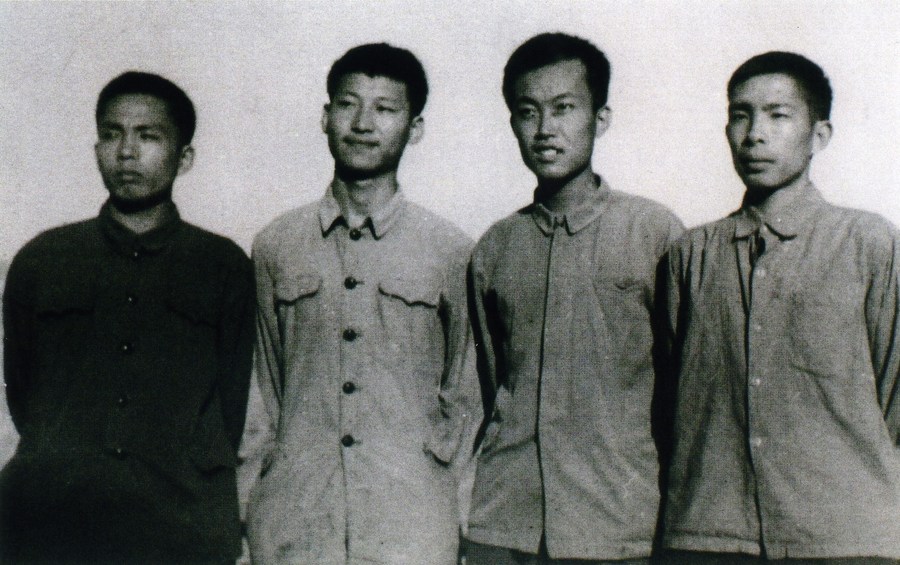Xi Jinping leads China on new journey


In 2013, Xi initiated a "targeted poverty alleviation" drive and made plans for its implementation. Altogether, over 255,000 work teams and more than 3 million cadres were sent to the countryside to help villagers shake off poverty household by household. About 100 million people were lifted out of extreme poverty in the past decade.
Being with the people through thick and thin has strengthened his conviction: to strive for happiness for the people and rejuvenation for the nation. In the past decade, Xi initiated five Party-wide education campaigns to remind CPC members of their original aspiration and the Party's founding mission.
Xi is very familiar with the plight of the nation after the Opium Wars brought by Western colonialists in the 19th century. In 2018, he visited the ruins of a cannon fort on Liugong Island in east China's Shandong Province. More than a century ago, the island bore witness to the crushing defeat of China's first modern navy in the First Sino-Japanese War. Xi paused for thought at the ruins, and inside the museum for the war he read out a patriotic poem deploring the foreign invasion at the time.

As the first CPC chief born after the founding of the People's Republic of China in 1949, Xi shared pride in a string of achievements that manifested "the Chinese people have stood up": the victory in the War to Resist U.S. Aggression and Aid Korea, the establishment of a relatively complete industrial system, and the manufacture of nuclear bombs and satellites. He commended the achievements. "Only socialism could save China; only socialism could develop China," he said.
After the reform and opening up was launched, Xi had great passion and devoted himself to the cause. From relatively poor inland regions to the country's affluent eastern coast, Xi took the lead in boosting foreign trade and investment, as well as the common development of both public and private businesses. As the Party's top leader, Xi convened a high-profile meeting of private businesses. He said private businesses and entrepreneurs are "our own people." He also said China's private sector can only be strengthened, not weakened.
Xi is regarded by his comrades, both at local and central levels, as being good at long-term planning.
In 2020, his strategic planning was manifested in mapping out the country's 14th Five-Year Plan and long-term objectives through 2035.To make a good plan, Xi chaired meetings to listen to the views and opinions of experts, business people, scientists and grassroots cadres. He instructed carrying out online suggestion collection. Chinese internet users gave over 1 million comments.
In the past decade, Chinese people's wealth grew steadily. In 2021, the per capita disposable income of the Chinese reached 35,128 yuan, growing nearly 80 percent from 2012. The urban-rural income ratio was narrowed to 2.5:1.
In Xi's words, all he did is essentially for the betterment of the people. He once penned a memoir in which he wrote, "We must love the people like we love our parents, work for their well-being and enable them to lead a better life." After becoming the general secretary, he said, "the people's aspiration for a better life is what we are striving for."
Meeting the press on Sunday after the first plenary session of the 20th CPC Central Committee, Xi said the people will "always have our back and give us confidence," and the Party will always ride out the storm with the people and stay heart-to-heart with them.
The Party and the government enjoy good ratings. A Harvard University survey found that Chinese citizens' satisfaction with the government has increased across the board, with the central authorities receiving the highest level of approval at 93 percent. An Edelman poll also found that trust among Chinese citizens in their government reached 91 percent in 2021, the highest around the globe.























